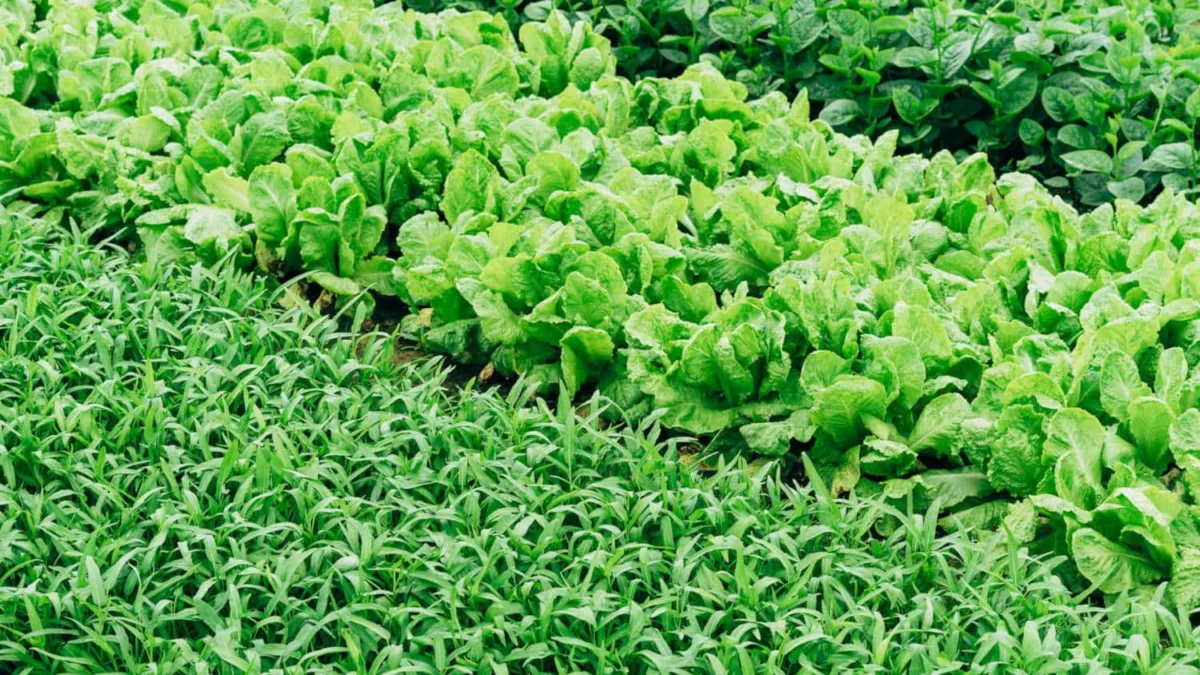Many people are interested in growing their own vegetables, but they’re too afraid to take the plunge. Is it worth it? I say yes! Here are some of the main benefits:
Can you save money with a vegetable garden?
First things first, if saving money is your only incentive, you should probably try something else. A vegetable garden is not really a huge money saver. This is especially true once you consider, how much effort you have to put into it.
How much you might save depends on a lot of factors. The first step is to estimate how much you spend on vegetables at the supermarket.
Next, think about how much it will cost you to buy the tools for a vegetable garden. If you want to have raised beds, you need to buy plywood and so on. Quickly, you might pay around $30 for each of your beds. Then add that cost to other expenses such as seeds and fertilizer (which could cost anywhere from $50-$100). Another cost might be water: There might be expenses related specifically to water usage. Depending on where your garden is, you might have other expenses like you might need to drive with the car.
A lot of factory come into play, when trying to answer the “money-saver” question. But there are more important reasons, you should consider, when starting your own garden.
Improve your quality of live
You can improve your quality of life, enjoy the outdoors and get some exercise in at the same time. Who doesn’t want that?
Perhaps you’ve been working in an office all day. As soon as you come home, working your garden is a good change. It’s fun and healthy for both mind and body. And it gives back something positive in return for all the hard work that goes into it. In addition, growing your own food is a great way to spend some time outside with your children or partner. This helps build bonds between family members.
Enjoy fresh fruits and vegetables
One of the most common reasons people give for not having a vegetable garden is that they don’t have time. This is understandable; who wants to spend hours working in the garden when you could be doing something else? But the truth is: If you buy all of your produce from supermarkets or farmers’ markets, it’s likely that only a few types are available each season (this is why supermarket offerings never change). By growing your own, however, you can experiment with different varieties of fruits and vegetables—and discover new favorite foods!
Did you know there are more than 3000 different varieties of tomatoes? Or that there are blue potatoes? You don’t have to settle for just one type when there are so many possibilities out there waiting to be explored! With your vegetable garden, you can truly enjoy the richness of mother nature.
The educational aspect of a vegetable garden
A vegetable garden is also a great way to teach your kids about the life cycle of plants. They can watch as seeds grow into seedlings and then into full-blown plants. As they grow, you can teach them about different types of soil, fertilizers, and what kinds of plants work well in certain types of soil conditions. Understanding the basics of our human existence is of a great value in our complex world. Share it with your kids!
Improve your health with your own garden
You’ll be able to reap the benefits of fresh vegetables. Vegetables are nutrient-dense and have many health benefits, including reducing your risk of heart disease and certain cancers. Vegetable gardens are good for people who don’t get enough fruits and veggies in their diet, because it forces them to eat more foods from this group. But not just that! While you work your garden, you basically exercise! You need to stretch. You need to dig. In your garden, you are on the move.
A vegetable garden is quite some effort
If you are already a gardener, you probably already know that it takes quite a bit of work to maintain a vegetable garden. If you do not have much experience with gardening, though, keep in mind that there is a lot more than just planting seeds and watering plants. As an experienced gardener you know, “just” planting and watering is actually quite some effort in itself. But not only must you plan what types of vegetables you want to grow, but also where they will go within your yard. You need to consider whether or not the area gets enough sun for certain plants and whether or not it will get enough water from rain or sprinklers set up beside it (this is often referred to as irrigation).
You can easily spend many hours each week preparing soil for planting and maintaining your vegetable garden throughout its growing season by watering regularly and fertilizing as needed. You may also need to prune away dead leaves from plants so that energy isn’t wasted on maintaining them; this means spending more time each week keeping an eye on what’s happening with all those veggies!
Is a vegetable garden worth it?
If you have a passion for gardening and fresh produce, then it’s probably worth it for you. But if you aren’t one to spend hours tending to your garden, maybe a vegetable garden isn’t right for you. Likewise if you can’t stand the dirt which inevitable comes with it.
In the end, you need to try it for yourself. If you are unsure, or you fear the effort, it is always good to start small. There is really no need to start with your own acre. You can start with a small plot, like 3 feet wide and 9 feet long. This will require much less effort and you will see how rewarding such a small plot already can be.

